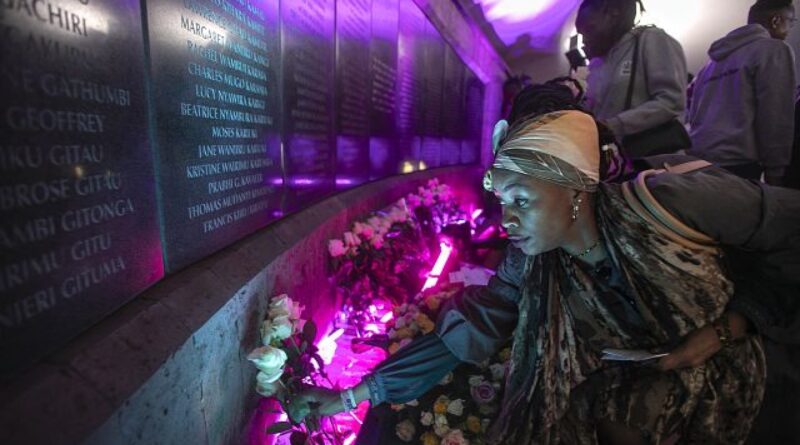Families of victims of 1998 attack on US embassy Nairobi renew demand for reparations
Survivors and families of victims of the 1998 attack on the American embassy in Nairobi renewed their demand for reparations from the US government on Monday, on the 25th anniversary of the deadly attack claimed by al-Qaeda.
Mid-morning on August 7, 1998, a powerful explosion devastated the American Embassy in the center of the Kenyan capital. Most of the 213 dead and over 5,000 injured were passers-by or office workers in buildings adjacent to the embassy, where 44 people, including 12 Americans, were killed.
A few minutes later, another attack targeted the American diplomatic representation in Dar es Salaam, in neighbouring Tanzania.
On Monday, families of victims and survivors of the Nairobi attack renewed their demands for compensation at a ceremony held on the site of the former embassy, in the presence of Kenyan and American officials.
“This incident is still fresh” in people’s memories, said Anisa Mwilu, who lost her husband in the attack. “What we can ask for is compensation, and that’s what we’re asking for today”, she continued, to the applause of several hundred people present.
Caroline Muthoka, a member of the Victims’ Consortium, vilified the “injustice of the US government” in failing to approve financial compensation, and called on the US Congress to pass legislation to cover “medical expenses” and “our children’s education”.
On the morning of the attack, Redempta Kadenge Amisi was in the offices of the Ufundi Building, a building next to the embassy that was totally destroyed by the explosion.
“I was on the fourth floor, and the three people I was with were killed instantly”, the 80-year-old woman, now in a wheelchair as a result of the after-effects of the attack, tells AFP.
“I didn’t realize it, but my back was on fire and I spent over four weeks in hospital. But since the attack, I’ve received nothing, no compensation even though I have to take treatments morning and night. But I’m still hoping to get some,” she concluded.
At the ceremony, the names of the victims of the Nairobi and Dar es Salaam attacks were read out to a tearful crowd, and candles were lit in their memory.
The bombing was the first in a series of attacks in Kenya. The deadliest targeted the Westgate shopping mall in Nairobi in 2013 (67 dead), Garissa University in 2015 (148 dead) and the Dusit hotel complex, also in Nairobi, in 2019 (21 dead).

